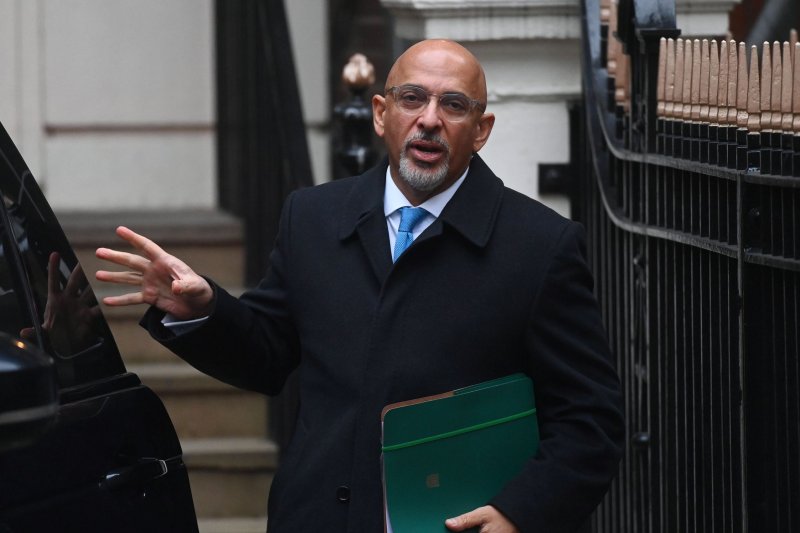- Details
- East Africa
- 935
Nadhim Zahawi, chairman of the Conservative Party, departs Conservative Party Headquarters in London, Britain, on Wednesday. British Prime Minister Rishi Sunak has sacked Zahawi after he was found to have breached the ministerial code by failing to declare the HMRC investigation into his tax affairs. File Photo by Neil Hall/EPA-EFE/Photo Courtesy
British Prime Minister Rishi Sunak on Sunday fired Nadhim Zahawi, the chairman of the country's Conservative Party, after an investigation found he failed to declare his personal tax issues.
Sunak said in a letter to Zahawi that the investigation by ethics adviser Laurie Magnus found he had been in "serious breach" of the ministerial code for failing to declare he was subject to an investigation by His Majesty's Revenue and Customs, the nation's tax collection agency, when he was appointed chancellor of the Exchequer by former Prime Minister Boris Johnson.
The HMRC investigation ultimately led to a settlement and penalty with the tax collection agency estimated at about $6.2 million.
The investigation led by Magnus also found that Zahawi, 55, had failed to officially declare that he had paid that settlement when his was appointed to a cabinet position by former Prime Minister Liz Truss in September and again when Sunak made him the chair of the Conservative Party in October.
"As you leave, you should be extremely proud of your wide-ranging achievements in government over the last five years," Sunak said in his letter to Zahawi.
"In particular, your successful oversight of the COVID-19 vaccine procurement and deployment program which ensure the United Kingdom was at the forefront of the global response to the coronavirus pandemic."
Sunak added that the British government has benefited from the services of Zahawi, a Kurdish-born Iraqi refugee who has served at the "highest levels" of the British government.
Zahawi responded to the firing in an open letter to Sunak, thanking the prime minister for his "kind words" while blaming the situation on the media.
"I am concerned, however, about the conduct from some of the fourth estate in recent weeks," Zahawi said, addressing the news of his tax avoidance problems reported in the media.
"In a week when a member of Parliament was physically assaulted, I fail to see how one headline on this issue 'The Noose Tightens' reflects legitimate scrutiny of public officials. I am sorry to my family for the toll this has taken on them."
"No apology, humility or guilt," Khan wrote on Twitter. "Shamelessly blaming the 'fourth estate,' i.e. the press/media."
In his findings, Magnus wrote that Zahawi "has shown insufficient regard for the General Principles of the Ministerial Code and the requirements in particular, under the seven Principles of Public Life, to be honest, open and an exemplary leader through his own behavior."
"I want to commend Mr. Zahawi for his willingness to assist with my inquiry. I also fully appreciate the pressures faced by Ministers as they address the complex issues of government and the difficulties they encounter in balancing the demands of their personal lives and their ministerial responsibilities," Magnus wrote.
"These factors, however, cannot mitigate my overall judgment that Mr. Zahawi's conduct as a Minister has fallen below the high standards that, as Prime Minister, you rightly expect from those who serve in your government." By Adam Schrader, UPI






